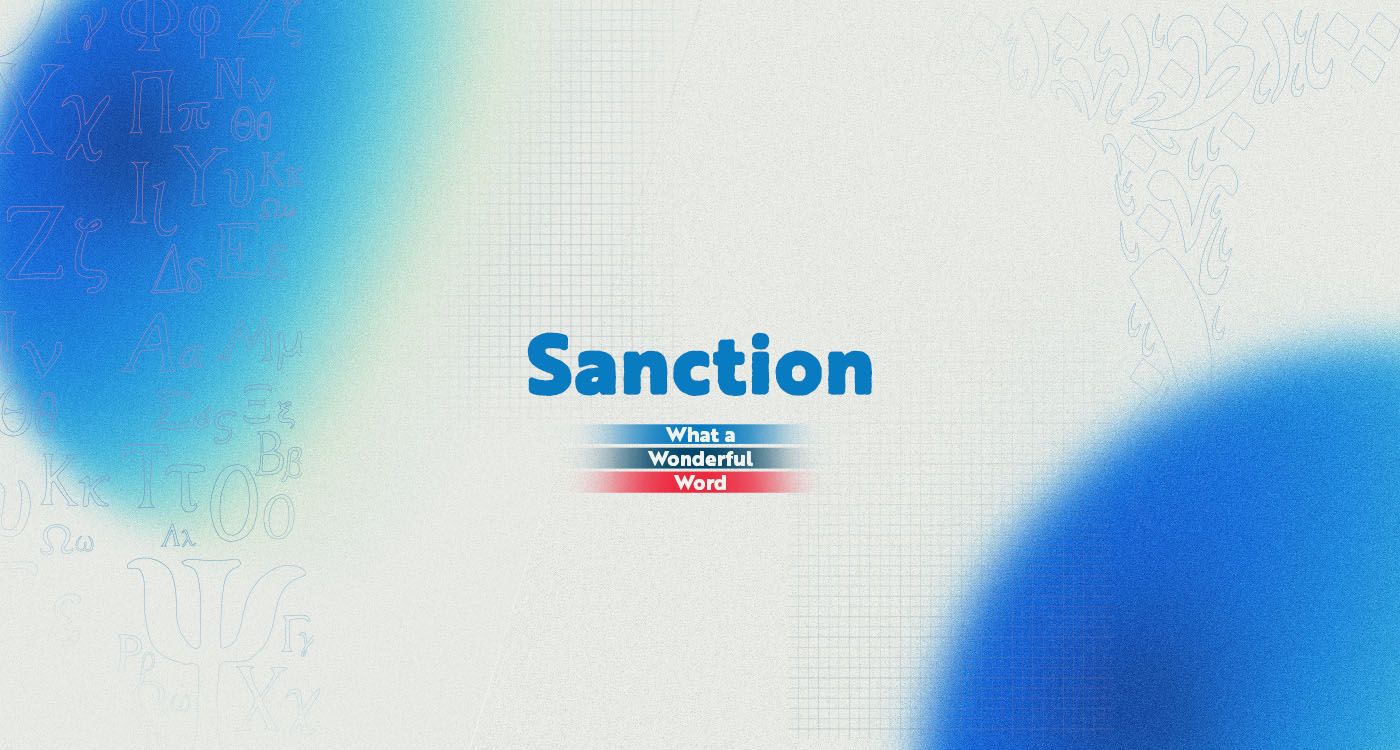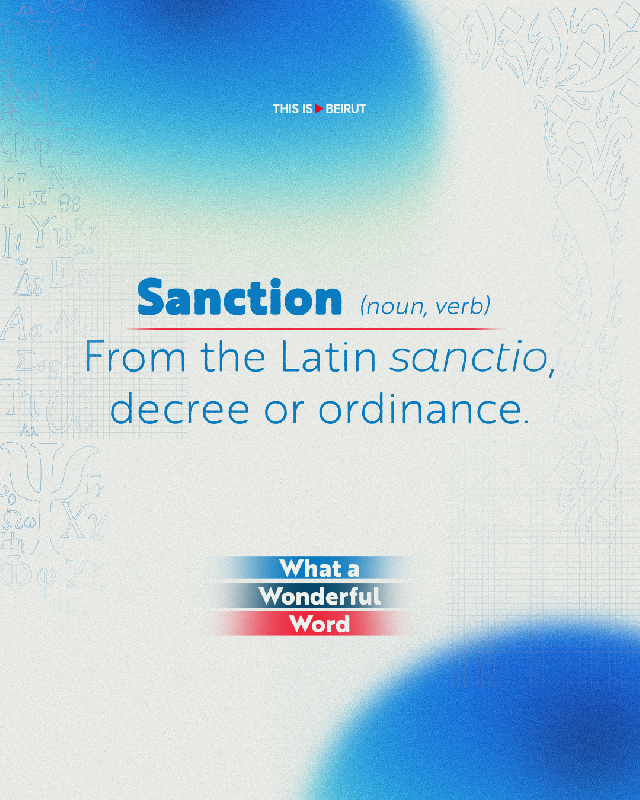
A seal of approval and a tool of punishment, the word sanction is a linguistic paradox. From medieval decrees to modern-day geopolitics, its dual meaning – ratify or reprimand – reflects the enduring tension between authority and coercion, between legitimacy and force.
Following Russia’s invasion of Ukraine in 2022, the word sanctions dominated headlines for months. Western governments imposed sweeping economic sanctions targeting banks, state companies, oligarchs and energy sectors – efforts meant to isolate Moscow diplomatically and financially. In parallel, targeted sanctions have also become common against terrorist groups, cybercriminals and individuals accused of corruption.
But did you know that the word sanction is one of those rare linguistic oddities that can mean two opposite things?
A Word That Both Ratifies and Restricts
Sanction entered English in the late Middle Ages from French, rooted in the Latin sanctio, meaning a decree or ordinance. This itself comes from sancire, “to make sacred, to ratify.” The original sense of the word had to do with formal, binding approval – a law made legitimate through ecclesiastical or sovereign power.
But embedded in that early meaning was the idea that a rule not only grants permission, it also enforces obedience. And what enforces better than threat of punishment? That double edge gave rise to the two-faced word we have today.
By the 18th century, the verb to sanction could mean to authorize something (“the court sanctioned the agreement”) or to penalize someone for violating rules (“the firm was sanctioned for misconduct”). Both meanings persist, coexisting in legal documents, news headlines and diplomatic language, sometimes leading to real confusion.
Its contradictory meanings – approval vs. penalty – make it a linguistic double agent. In grammar, this is called an auto-antonym or a contronym – a word that means its own opposite.

Legal Tool, Moral Code, Foreign Policy Weapon
In legal and philosophical contexts, sanction refers to anything that enforces obedience, whether it’s a fine, a social stigma or the weight of a moral conscience. In everyday life, we talk about legal sanctions for breaking laws or disciplinary sanctions in institutions. But it’s in international politics that the word has gained dramatic new resonance.
Sanctions today are no longer just symbolic reprimands. Asset freezes, trade bans, travel restrictions: they are coercive economic or political measures aimed at pressuring states or individuals to change behavior. In the 21st century, sanctions have become the go-to tool for states responding to violations of international law, human rights abuses or geopolitical aggression.
What makes sanctions so politically potent is that they are legally defined yet morally charged. They act without military force, but with sometimes devastating impact – as history has shown in places like Iraq, Iran, North Korea and now Russia.
Between Seal and Sword
No wonder sanction causes confusion: it pulls in two directions at once – to punish and to permit, to forbid and to endorse. But this contradiction isn’t just semantic, it mirrors a deeper tension between authority and autonomy, between coercion and legitimacy.
From diplomatic pressure to legal endorsement, sanction doesn’t just describe power, it enacts it. And like power, language is never neutral. Every time we sanction something, we choose a side, even if the word refuses to.
In the end, sanction is a linguistic paradox with real-world consequences, a reminder that words can carry both the sword and the seal.


Comments